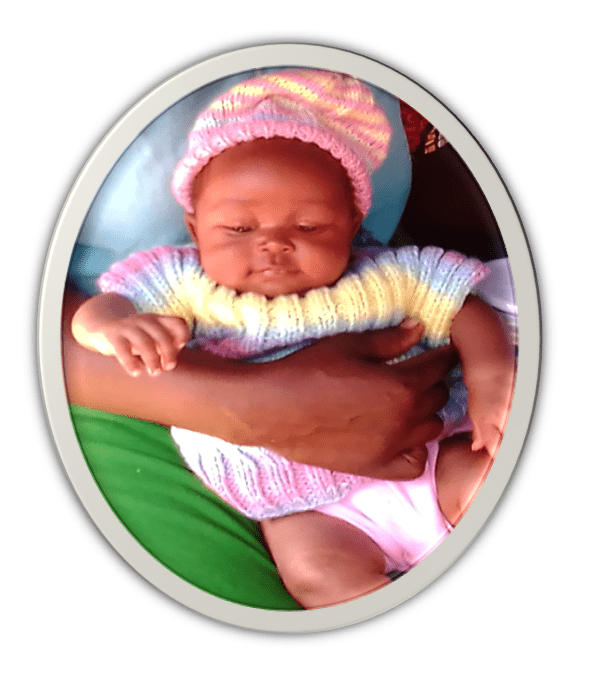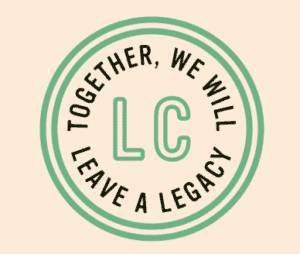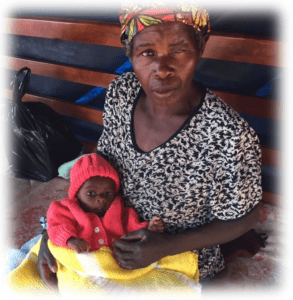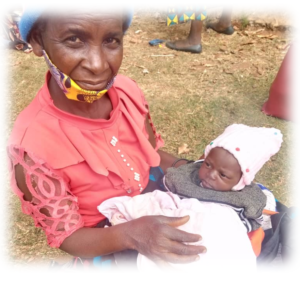Twenty-one babies were enrolled this month (10 orphans, 5 babies whose mothers are admitted in the ICU, 1 baby whose mother is not producing milk, 1 set of orphaned twins, 2 babies of mothers with severe mental health illness, 1 one baby whose mother left her with the grandmother). Two women were enrolled, both of whom lost their uterus due to birth complications – they are 19 and 20. Nurses conducted 190 visits to mom and babies this month.
Baby Care Story. Hannah’s mother was diagnosed with breast cancer and started chemotherapy but when she unexpectedly became pregnant at 40, she stopped her treatment. She delivered Hannah prematurely. Hannah weighed just over three pounds at birth, but she quickly put on weight with her mother’s breast milk. After two months her mother’s health began to deteriorate at a precipitous rate, and she returned to the cancer treatment center to resume her chemo. Hannah’s grandmother brought Hannah to us, requesting assistance with formula and nursing support.
Mother Care Story. Loveness was just 20 and pregnant with her first baby. Her labor was long and hard. She headed to health center when her labor started and was watched by the clinicians there. But,health centers do not have the facilities to conduct c-sections. By the time she was transferred to the District Hospital, it was too late. Her uterus had ruptured, her baby had died, she was bleeding internally. Loveness lost her baby and her uterus and almost lost her life. At the time of discharge, Loveness was weak and depressed. Joyful Motherhood nurses will visit her at home over the next couple of months, but she is just starting a long road to recovery.
Many times when policy makers, academics, aid organizations, etc. consider maternal mortality and strategize ways to improve statistics the emphasis is placed on receiving prenatal care and delivering within facilities. However, the vast majority of the women we care for, or whose orphan babies are enrolled in our programs, have followed the “rules.” They attended prenatal visits. They made their way to health facilities for delivery. But in the end, they were not protected from excessive suffering or loss. As an organization we stand with the victims, who are often invisible to the larger system. Our support is focused directly on them.
If you would like to support our work, please DONATE.




